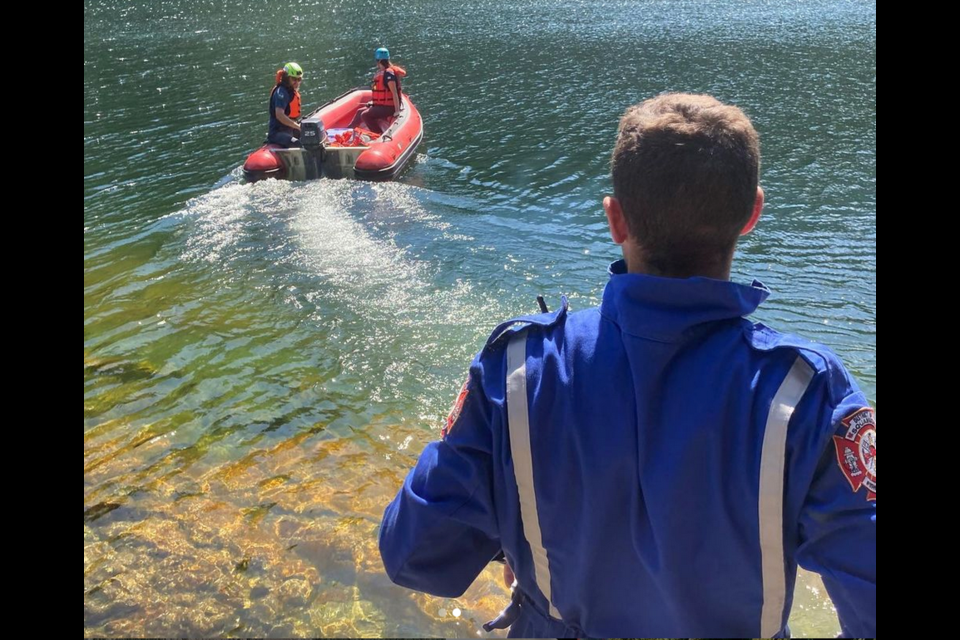The split-second decision to leap can have life-altering consequences.
Ahead of the long weekend, Vancouver Coastal Health (VCH) and Squamish Search and Rescue are reminding the public to avoid cliff jumping.
According to a news release from VCH, over the past decade, there have been 355 critical incidents in B.C. where individuals have been badly hurt falling or jumping from a cliff or high place outside their workplace or home.
In Squamish, first responders were called to Brohm Lake on June 17 after someone was hurt diving off the cliffs there.
The release states that cliff jumping is dangerous due to underwater hazards like rocks that may not be visible and changing water depths that may make it shallower. Strong river or ocean currents can also rapidly sweep people away, or the shock of cold water may make swimming difficult.
Dr. Harvey Hawes, a trauma surgeon with Vancouver General Hospital's Trauma Services, told The Squamish Chief that physicians are seeing cliff-jumping severe injuries in young men and women, and older folks.
"We are seeing it more and more. And certainly, social media is playing a huge role in promoting these kinds of things," he said.
Because these incidents happen at more remote locations, it can often take hours to get the injured person to the hospital, Hawes said, noting the time to locate the person, get them out of the water, stabilize them and transport them to the hospital.
"That is not ideal," he said.
He stressed that these preventable injuries can change the course of a person and a family forever.
"These can be incredibly devastating injuries; they are high jumps, you are moving at about 40 kilometres an hour when you hit the water if you're high enough. Imagine going straight into a brick wall. That's what it's like if you hit a rock. The water conditions are variable. You don't know how deep it is, unless you're checking every jump, and you may not hit your mark," he said. "Each one of these [injuries] is massive. Devastating to the patient, family and to friends, but also the healthcare system."
He suggested that when folks are out with their friends, by the lake, maybe having a few drinks, it is hot, and they have the urge to jump — or are being cajoled into leaping — think of the next scene that could follow:
"The patient hits the water; there's some laughing and cheering, and then there's a delay, and the patient doesn't come up from the water. And it just switched to absolute horror," he said. The next emotional hit happens at the hospital when it becomes clear how bad the injuries are.
"Breaking the news to the patient and to the family that they will never be the same ... Life could be changed and altered in ways they never thought imaginable. That transition is, I don't think, a story that gets out there very often. I think we say, 'Don't jump in. It's not safe.' But just the horror that these families and patients go through is very hard to convey. And most people don't want to hear it. But that's the reality of it. That's what we see."




